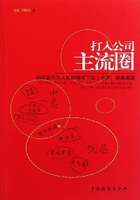The whole weight of testimony as regards Bismarck's occasional severity is to the effect that, stern and persistent as he was, he had much tenderness of heart; but as to the impossibility of any nation, government, or press scaring or driving him, I noticed curious evidences during my stay. It was well known that he was not unfriendly to Russia; indeed, he more than once made declarations which led some of the Western powers to think him too ready to make concessions to Russian policy in the East;but his relations to Prince Gortchakoff, the former Russian chancellor, were not of the best; and after the Berlin Conference the disappointment of Russia led to various unfriendly actions by Russian authorities and individuals of all sorts, from the Czar down. There was a general feeling that it was dangerous for Germany to resent this, and a statesman of another mold would have deprecated these attacks, or sought to mitigate them. Not so Bismarck: he determined to give as good as was sent;and, for a very considerable time he lost no chance to show that the day of truckling by Germany to her powerful neighbor was past. This became at last so marked that bitter, and even defiant, presentation of unpalatable truths regarding Russia, in the press inspired from the chancery, seemed the usual form in which all Russian statesmen, and especially members of the imperial house, were welcomed in Berlin. One morning, taking up my copy of the paper most directly inspired by the chancellor, I found an article on the shortcomings of Russia, especially pungent--almost vitriolic. It at once occurred to me to look among the distinguished arrivals to see what Muscovite was in town; and my search was rewarded by the discovery that the heir to the imperial crown, afterward Alexander III, had just arrived and was staying a day or two in the city.
When Bismarck uttered his famous saying, ``We Germans fear God and naught beside,'' he simply projected into the history of Germany his own character. Fearlessness was a main characteristic of his from boyhood, and it never left him in any of the emergencies of his later life.
His activity through the press interested me much at times. It was not difficult to discern his work in many of the ``inspired'' editorials and other articles. I have in my possession sundry examples of the originals of these, --each page is divided into two columns,--the first the work of one of his chosen scribes, the second copiously amended in the chancellor's own hand, and always with a gain in lucidity and pungency.
Of the various matters which arose between us, one is perhaps worthy of mention, since it has recently given rise to a controversy between a German-American journalist and Bismarck's principal biographer.
One morning, as I sat in dismay before my work-table, loaded with despatches, notes, and letters, besides futilities of every sort, there came in the card of Lothar Bucher. Everything else was, of course, thrown aside.
Bucher never made social visits. He was the pilot-fish of the whale, and a visit from him ``meant business.''
Hardly had he entered the room when his business was presented: the chancellor wished to know if the United States would join Germany and Great Britain in representations calculated to stop the injuries to the commerce of all three nations caused by the war then going on between Chile and Peru.
My answer was that the United States could not join other powers in any such effort; that our government might think it best to take separate action; and that it would not interfere with any proper efforts of other powers to secure simple redress for actual grievances; but that it could not make common cause with other powers in any such efforts. To clinch this, I cited the famous passage in Washington's Farewell Address against ``entangling alliances with foreign powers'' as American gospel, and added that my government would also be unalterably opposed to anything leading to permanent occupation of South American territory by any European power, and for this referred him to the despatches of John Quincy Adams and the declarations of President Monroe.
He seemed almost dumfounded at this, and to this day I am unable to decide whether his surprise was real or affected. He seemed to think it impossible that we could take any such ground, or that such a remote, sentimental interest could outweigh material interests so pressing as those involved in the monkey-and-parrot sort of war going on between the two South American republics. As he was evidently inclined to dwell on what appeared to him the strangeness of my answer, I said to him: ``What I state to you is elementary in American foreign policy; and to prove this I will write, in your presence, a cable despatch to the Secretary of State at Washington, and you shall see it and the answer it brings.''
I then took a cable blank, wrote the despatch, and showed it to him. It was a simple statement of the chancellor's proposal, and on that he left me. In the evening came the answer. It was virtually my statement to Bucher, and I sent it to him just as I had received it.















